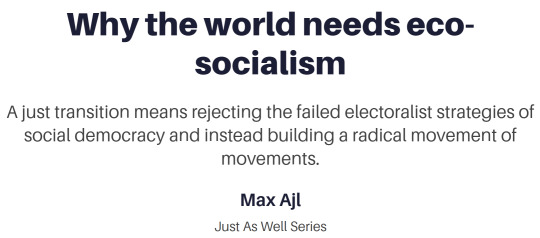Link
The Luddites were a secret organisation of workers who smashed machines in the textile factories of England in the early 1800s, a period of increasing industrialisation, economic hardship due to expensive conflicts with France and the United States, and widespread unrest among the working class. They took their name from the apocryphal tale of Ned Ludd, a weaver’s apprentice who supposedly smashed two knitting machines in a fit of rage.
The contemporary usage of Luddite has the machine-smashing part correct — but that’s about all it gets right.
First, the Luddites were not indiscriminate. They were intentional and purposeful about which machines they smashed. They targeted those owned by manufacturers who were known to pay low wages, disregard workers’ safety, and/or speed up the pace of work. Even within a single factory — which would contain machines owned by different capitalists — some machines were destroyed and others pardoned depending on the business practices of their owners.
Second, the Luddites were not ignorant. Smashing machines was not a kneejerk reaction to new technology, but a tactical response by workers based on their understanding of how owners were using those machines to make labour conditions more exploitative. As historian David Noble puts it, they understood “technology in the present tense”, by analysing its immediate, material impacts and acting accordingly.
Luddism was a working-class movement opposed to the political consequences of industrial capitalism. The Luddites wanted technology to be deployed in ways that made work more humane and gave workers more autonomy. The bosses, on the other hand, wanted to drive down costs and increase productivity.
Third, the Luddites were not against innovation. Many of the technologies they destroyed weren’t even new inventions. As historian Adrian Randall points out, one machine they targeted, the gig mill, had been used for more than a century in textile manufacturing. Similarly, the power loom had been used for decades before the Luddite uprisings.
It wasn’t the invention of these machines that provoked the Luddites to action. They only banded together once factory owners began using these machines to displace and disempower workers.
3K notes
·
View notes
Video
Probably reading too much into it but this video has always filled me with such indescribable longing. Like the climax of a sports movie where everyone else has turned away from our hero facing impossibly long odds except for the one die hard with his fists clenched whispering, “come on you son of a bitch, you can do it.” But “it” in this case is outrunning the toxic nightmare of urban sprawl. I want him to run so fast he breaks free from the things we’ve done to this world. I want him to clear the city limits and find the forests that don’t really exist anymore. To gambol and forage and rest in primeval bliss. I want him to make it.
17K notes
·
View notes
Note
do slugs like being pet / given attention or even held?
nope! it’s scary, your hands are full of irritant oils, and you smell like a predator.
9K notes
·
View notes
Text
Ted Kaczynski was an awful dude, but the amount of times I've recently thought to myself "the Industrial Revolution and its consequences have been a disaster for the human race" (just that phrase, not any of his additional reactionary ramblings) upon seeing late-stage capitalist widgets, waste, and war has been nigh uncountable.
Uncritical progress narratives — upheld by both Pinkerist liberals and Promethean socialists — always presume that the good of modernity far outweighs the bad. Capitalism is seen as a necessary step in the arc of history, even as it dehumanizes billions and turns everything into a commodity at the altar of profit. People have to just "put up with it" in some sense because the deterministic march of destiny demands that humans develop the productive capacities, despite this putting the world ecologies on the brink of collapse.
The Industrial Revolution gave us polluting factories, concentrated exploitation, fascism, the nuclear bomb, state surveillance, car culture, AI art, the military industrial complex, the abstract movement of stock lines mattering more than the concrete material needs of human beings — the list goes on and on.
For the sake of balance, I don't want to act like modernity is all bad. Certain yet-to-be-realized worldviews and structures fostered in the pockets of capitalist civilization are definitely worth taking with us into a potential classless future.
Left-libertarian ideas of reconciling negative liberty and positive liberty, and reconciling the freedom of the individual with the larger collective good? Great stuff.
An internationalism whereby all people are seen as part of the same global community that can thrive via cooperation? Hell yeah.
A collection of sustainable technologies that can be used in a humanizing context to reduce toil, save lives, help us steward the Earth, or otherwise improve our lives? Sign me up.
But I don't believe that those things required dragging humanity through the slaughterhouse that was/is hundreds of years of imperialism and capitalism. We could have came to these conclusions and innovations through a different path, one that didn't put us at the mercy of industrialists and racists and bureaucrats and war profiteers. Hell, various indigenous groups and cultural communities throughout the world across the thousands of years since the Neolithic were realizing those above-mentioned positives in their own ways long before the modern west did; so the path was certainly not set in stone and the rest of humanity could have ended up following their examples. All of this outlines how west-centric progress narratives truly are — their conceptions of "development", their ideas of what structures are inevitable or necessary, their preoccupations with the dehumanizing technologies which have alienated the life out of people and planet.
We can do so so much better. And it's not because socialism will inevitably follow capitalism in some preordained script; it's because we always had the potential to realize a classless, cooperative, ecologically-rooted society by virtue of being human. Material conditions do matter, but that doesn't mean socialism requires capitalist conceptions of "development" — it doesn't mean that the good society is only possible once we've trudged through the back-breaking grind of an imperial machine at its apex, like some kind of proverbial Heaven at the close of a grueling sinful life and purgatorial repentance. Yes, it will take a lot of work to reach socialism, but that "work" shouldn't follow the dualistic laws of progress forced onto us by the civilizational leviathan presently setting the world on fire.
Socialism was, is, and shall be always immanent within humanity. Though there is no true "end of history" — no literal socio-political eschaton — socialism acts a kind of realization of our deepest and fullest potentials, as well as a negation of and ending to the eons of imperial civilization. Socialism is a metaphorical eschaton we absolutely must immanentize.

5 notes
·
View notes
Text
hate how so much of adult friendship relies on updates, experiencing your life through pictures and tidbits. we had it good with childhood friends, could spend years and years basking in the same circumstance. now i just float through clouds of strangers, hungry for something solid and warm. yes i carry your heart within mine, yes i see the world through your eyes. but in that very moment i still feel alone, still know it's poor substitute for same room, twin smiles.
42K notes
·
View notes
Text
"[A]s the experience economy expands to include commodified notions of things like slowness, community, authenticity, and 'nature' -- all while income inequality yawns wider and the signs of climate change intensify -- I feel the panic of watching possible exits blocked. I keep wanting to do something instead of consume the experience of it. But seeking new ways of being, I find only new ways of spending."
-Jenny Odell-
29 notes
·
View notes
Text




“what do you mean you wouldn’t personify your state as a hot young MILF with sweet perky milkers?!”
#dionysian socialism would entail more statues like this#in case you were wondering#statues showing off tits and dicks and asses as an allegory for socialist freedom
65K notes
·
View notes
Text
im gonna be real i do think we need to spend more time as a society encouraging adults to play pretend in structured ways bc what i’m getting from a variety of sources is we all like to make fake shit and pretend to be people we are not
81K notes
·
View notes
Text
The abolition of the reified power of capital alone does not guarantee the realization of sustainable production because production is a material process, and burning fossil fuel means the same for the climate whether that happens in capitalism or socialism. The point is that non-capitalist society expands the room for more conscious control of production and consumption once freed from the endless competition and endless accumulation of capital.
Kohei Saito, Marx in the Anthropocene: Towards the Idea of Degrowth Communism
332 notes
·
View notes
Text

"The wrong Amazon is burning"
Sticker spotted in Anchorage, Alaska
5K notes
·
View notes
Text
real life society: we need to ban tiktok because china is evil
my ideal society: new species of deer was just discovered in Peru. it is shown on all news channels and the entire population spends the day discussing & reflecting on life's diversity, people are let off work early
34K notes
·
View notes
Text

Society If Text Wall bringing the heat as always: another post perfectly summarizing the delusions of the "growth for the sake of growth" mindset.
90 notes
·
View notes
Text

Development and underdevelopment are two sides of the same process: accumulation on a world scale. Climate change, in turn, is a human-made process, a product and accelerator of uneven accumulation. Because it is human-made, some states (as well as some within those states) are more responsible than others. And the very poorest simply bear no culpability at all. Yet those least culpable – Bangladesh, Yemen, Haiti – are those which will suffer most in a warming world. Drought, typhoon, and flooding have and will burst across the South with far more ferocity and frequency than across the North. Climate injustice is a thus part of the story of uneven capitalist accumulation.
Climate change is the child of fossil-fueled capitalist industrialization. While in principle industrialization is a distinct process from capitalism and imperialism, in history it has moved hand-in-hand with them – each whirl in a destructive spiral. Industrialization, especially, provides the engines of war, and contributes to making life easier for many, especially but not only in the North, allowing it to freely devastate the ecologies and states of the South.
Where does that leave us? We need global eco-socialism. Such a system would be marked by global developmental convergence: just about everyone and in particular every state would have roughly equivalent access to development (or, the good life). Such a system would necessarily be modern, with complex exchanges of goods. It would be industrial, but a controlled industrialization, because industrialization is a tool. It is a means not an end.
And it would be ecological: it would in general not produce waste beyond human-natural capacity to remediate. And it would work towards the restoration of the ecology.
53 notes
·
View notes





